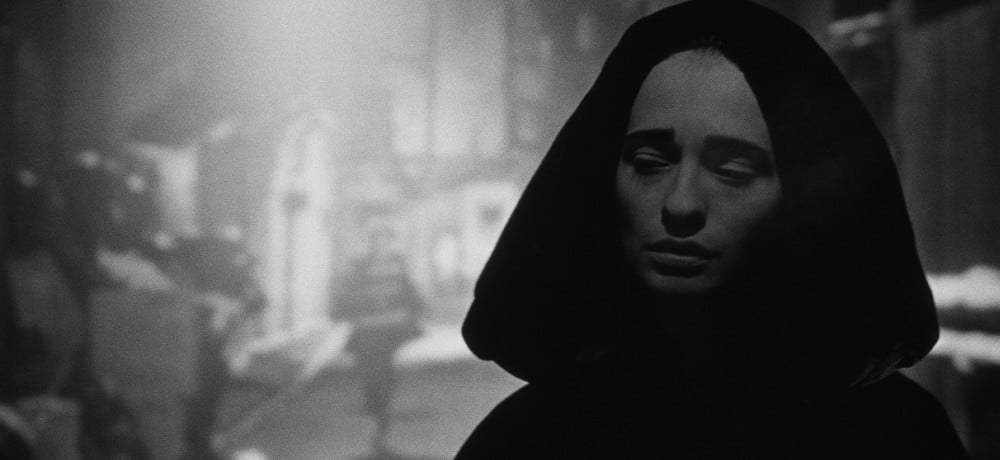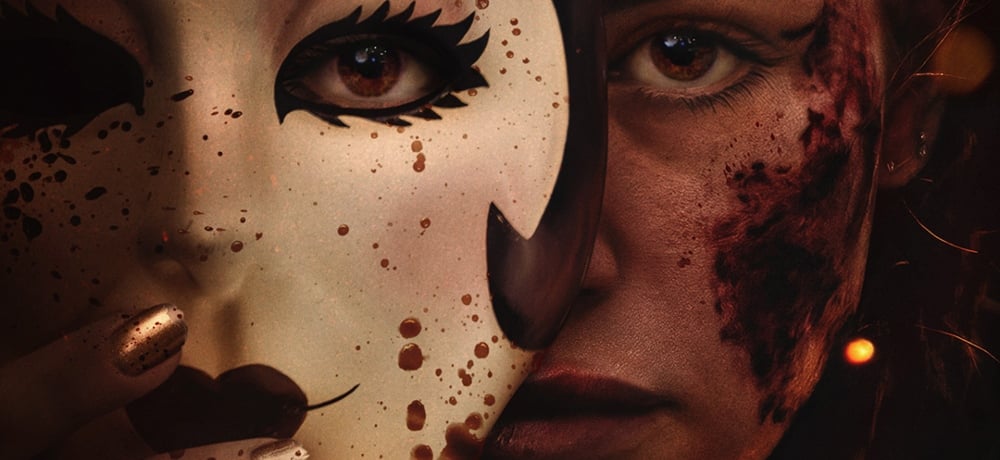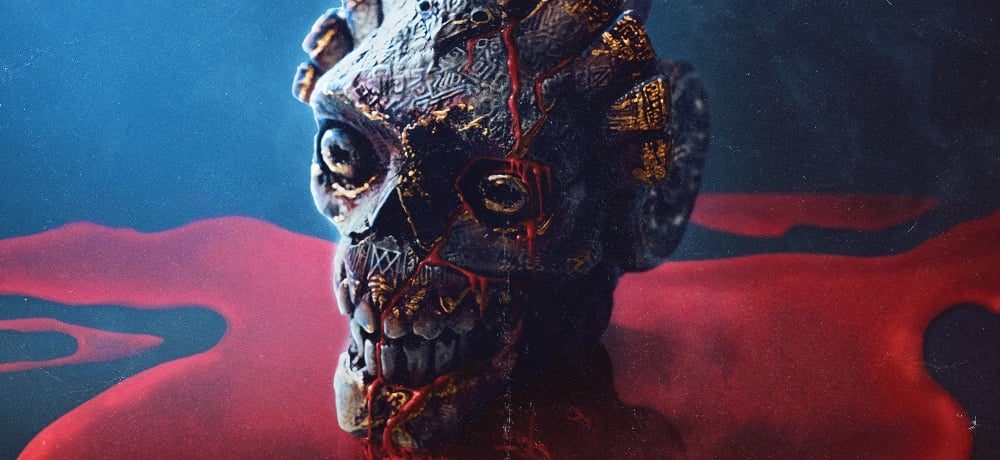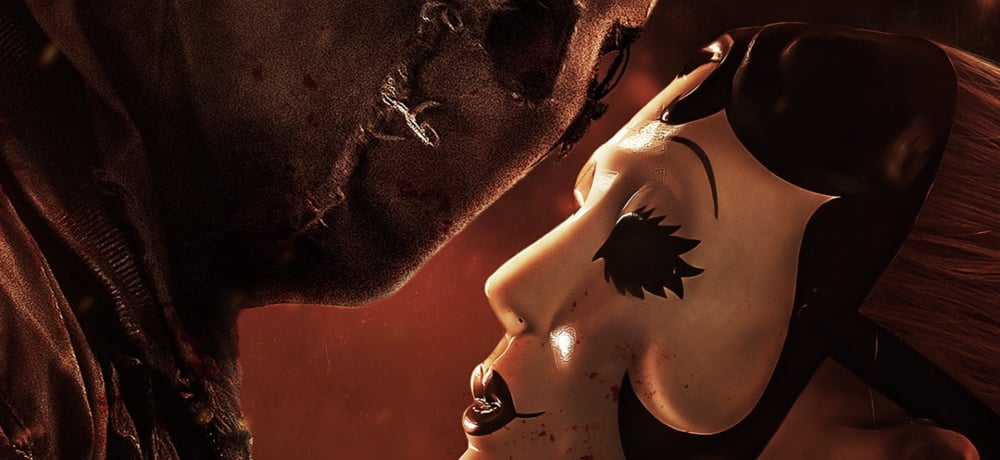





Opening with a limited theatrical release this week is writer/director Anna Biller’s The Love Witch, a cinematic tribute to the days of Technicolor, pulp novels, and the rise of feminism in the 1960s. Starring Samantha Robinson, The Love Witch follows her character Elaine, a spellbindingly beautiful witch who wants nothing more than to find true love, but her powerful elixirs and seductive nature always thwart her efforts.
Daily Dead recently had the opportunity to sit down and speak with Biller about her latest project, and the filmmaker discussed her approach to both the story of The Love Witch and its complicated protagonist Elaine, who gave her the opportunity to embrace the often conflictive nature of the female consciousness. Biller also chatted about the long road in getting her ambitious project onto the big screen, how the current climate in society, in regards to how women are perceived and represented, has made The Love Witch more relevant than ever, and much more.
The Love Witch opens in Los Angeles on November 11th before hitting New York on November 18th, with a subsequent national rollout to follow, courtesy of Oscilloscope Laboratories.
Beautiful job on The Love Witch. I'd love to hear more about what inspired this approach to the story and the character of Elaine. I could watch five movies about her; I absolutely loved her, and Samantha was fantastic.
Anna Biller: I really thought about Elaine's character a lot. It took me a long time to write the script. I was trying to put things in that are like me and like women I've known, and create her from this combination of different women that I've known, to make her feel very psychologically real. I really wanted to make it about a female consciousness. I know there are all kinds of different female consciousnesses, but you don't really ever see female consciousness on the screen anymore. So many female characters feel like such cardboard characters to me. With Elaine, I feel like she's naughty and wicked and she's all these different things. She has all these contradictions and I really wanted to put that in.
I've noticed that certain male critics will say that I lack focus and that I'm confusing in what I'm trying to say. That's kind of a projection, in a way, of thinking, "That woman is just fucked up. She doesn't know what she's trying to say about her character." Women often recognize that we all have those kinds of conflicts and contradictions.
I went to Spain, and all the reporters were very hostile. They kept saying, "What is your message?" And I wish there was a clear answer to that question and this dilemma that we have as women with our identity. It's putting it all out on the table, but I never say that I have a definitive answer, or that there's only one point of view, either. If you've experienced being a woman, then you've experienced the fact that our identity is often about wrestling with all those contradictions and more.
Piggybacking on that, the idea of female identity and representation seems to be addressed now more than ever. There are a lot of issues coming to the forefront in terms of female representation in entertainment and in every facet of society, too, which makes things very interesting, to say the least. When you were first starting The Love Witch, were you conscious of how much of a statement this film potentially was going to be making?
Anna Biller: Yeah. Ever since I started making films, 20 years ago, I've been trying to make a statement with everything, and with every female character I've created, it's been a feminist statement. I hadn't gotten too much attention for that up until this movie. That's because it is in the air. Actually, people are asking me questions about female characters, female representation, and feminism. They didn't used to ask that. It's more in the general consciousness than it used to be. People are more interested in women's stories. That's really great. I've only been doing it forever. People are now dragging up my old films, and they're talking about them in this way, which they didn't before. It's all in there, it's just that they didn't notice it before. That's actually really great.
The thing is, though, I don't think just because you're a woman means that you're making a feminist movie. I have to say that I feel strongly about that. Women are bombarded with all the same sexist messages that men are, too, so it’s tough. I don't think you can unconsciously create a feminist film; I really believe that you have to be consciously creating a feminist movie to create a feminist movie.
The Love Witch, even though it's so fabulous looking, is talking about the drudgery of a woman's life in a similar way. Because there is this fabulousness to being a woman, but really, it's not. It's not fabulous. Elaine’s very oppressed, actually.
I love that you used this fun ’60s aesthetic in The Love Witch, despite the fact that it’s set in current times, because it was such a special time in cinema. Was having that time period reflected here, a time where so much was happening in the realm of sociopolitical upheaval, the perfect vessel for this kind of a story?
Anna Biller: Absolutely. Not only because of the things that are going on, but more because it allows the film to cast a certain type of magical spell over the audience because everything is so visual and so beautiful. Also, because it was a time in which movies like The Stepford Wives were being made, a lot of the time, I'm really referencing that in Elaine's attitude about her wanting to go be a Stepford wife, and just sort of give up trying to get power more directly.
Also, it was the time when witchcraft really became popular, and so it ended up having this double meaning. It was also this thing about the male fantasy of naked witches and the exploitation of naked witches, and witches being sexy. There were all these pulp novel covers about that. But it also a time when feminism was rising, women were feeling this thing about being witches, having their personal power and their sexual power. I like to always go back to the ’60s and the ’70s because it's a time when everything really shifted in gender relations, and became just the opposite of what it was before. It was good and bad.
As for the look, it was the lighting actually, more than anything else. And shooting on film was important, and the way the color is timed helped, too.
Wait, you shot on film for this?
Anna Biller: We did. That's a lot of it. Part of it is the film, part of the way it's lit. If you made exactly the same film that I made, but you had a different DP, even if you're shooting on film, and he used high-speed film and he didn't use the kind of lighting that we used, you would have something that looked contemporary. It was the right balance of techniques.
When you're making an independent film, there's a tendency to try and keep things as contained as possible. Everything happens in one location, they shoot digitally, they have a very small cast, minimal costumes, and they pare it down. And there’s nothing against that approach at all, because you can make a brilliant film that way. But with The Love Witch, you pretty much went against the grain in almost every aspect of this film. Was that part of the challenge for you?
Anna Biller: When I make a film, I want it to look like the films that I love. I wanted this to feel like the ultimate witchcraft film, Bell, Book and Candle. And if that's my model for how I want something to look, then you have to have all of that. The films that I emulate, the Technicolor movies that I'm emulating, they're so beautiful and elaborate and visually astonishing. And if I'm aspiring to this look, I have to be doing as much as I can to get there, but I still don't think I get there because my budget is lower.
I definitely want to talk about Samantha before we wrap up. Can you talk about casting her as Elaine and working on her with this character. She’s remarkable, the way she handled the juxtaposition of her character. I loved her performance.
Anna Biller: She was always giving me a very authentic performance. That's what we talked about and that's what we worked on, for her to not make it campy or anything, to make it very real for her. She's going to try to feel and believe everything the character feels and believes. It took her awhile to get to some of those places with the character. The innocent part and the yearning part, the part where she wants love, she did all that. I didn't really coach her on that stuff. That came naturally out of her own sweetness.
We also watched a lot of classic movies together, movies featuring femme fatales. She took it very seriously. She took lots of notes and she really worked on it and really tried to make it very authentic to herself. It was great.
NSFW trailer: